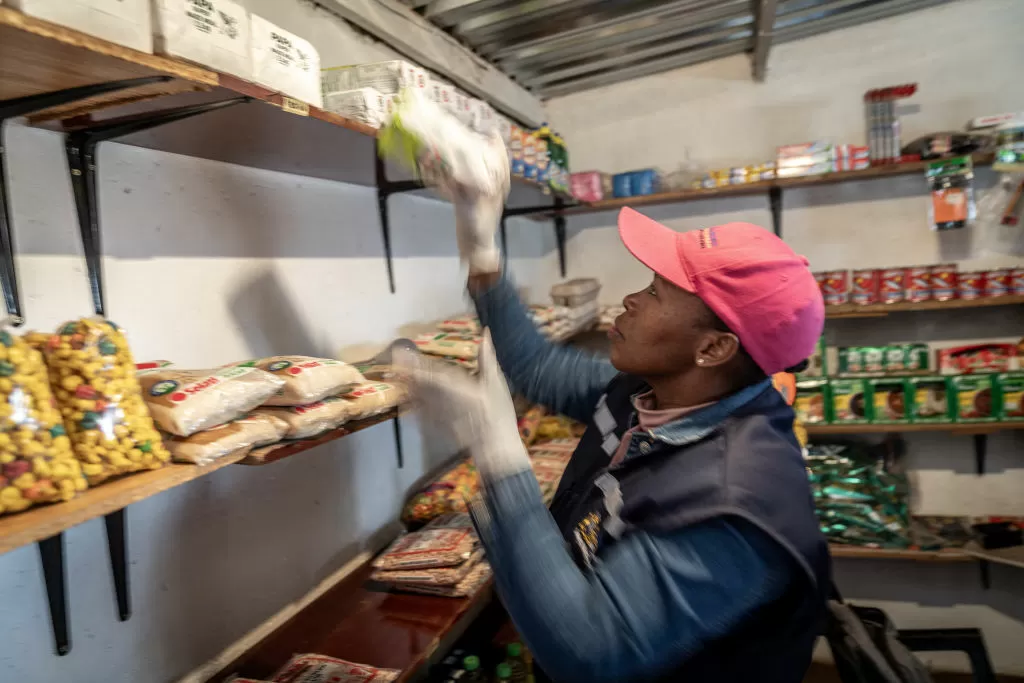Months of Drought in Southern Africa Triggered by El Niño Cause Worst Hunger Crisis in Decades
Southern Africa is currently facing one of its most severe hunger crises in decades, with millions of people struggling to access food and water. The cause of this crisis? Months of drought, brought on by the El Niño weather phenomenon.
El Niño is a natural weather pattern that occurs every few years, causing warmer ocean temperatures and changes in wind patterns. This can lead to extreme weather events such as droughts, floods, and storms. In the case of southern Africa, the effects of El Niño have been devastating, with many countries experiencing prolonged periods of little to no rainfall.
The impact of this drought has been felt across the region, affecting countries such as Zimbabwe, Malawi, Mozambique, and Zambia. In Zimbabwe alone, it is estimated that over 4 million people are in need of food assistance. In Malawi, the number is even higher, with over 6 million people facing food insecurity. These numbers are only expected to increase as the drought continues.
The consequences of this crisis are far-reaching, not only affecting the availability of food but also access to clean water, education, and healthcare. Many families are being forced to make difficult decisions, such as selling their livestock or pulling their children out of school in order to survive. This has a ripple effect on the entire community, as the loss of livestock and education can have long-term consequences.
The situation is particularly dire for vulnerable groups such as children, pregnant and breastfeeding women, and the elderly. These groups are more susceptible to malnutrition and its associated health risks. In addition, the lack of access to clean water increases the risk of waterborne diseases, further exacerbating the crisis.
The United Nations has declared the situation in southern Africa a Level 3 emergency, the highest level of humanitarian crisis. This means that urgent action is needed to prevent further suffering and loss of life. The UN and its partners have launched a humanitarian response plan, appealing for $2.8 billion to provide life-saving assistance to those affected by the drought.
In addition to the immediate response, there is also a need for long-term solutions to address the root causes of this crisis. This includes investing in sustainable agriculture, promoting climate-resilient farming techniques, and improving water management systems. These measures can help communities become more resilient to future droughts and reduce their dependence on external aid.
The international community has also stepped up to support the affected countries. Donor countries and organizations have provided financial and material assistance, and many have pledged to continue their support in the long term. This solidarity and collaboration are crucial in addressing the crisis and helping the affected countries recover.
Despite the challenges, there are also stories of hope and resilience emerging from the region. Local communities are coming together to support each other, and innovative solutions are being implemented to mitigate the effects of the drought. For example, in Zimbabwe, farmers are using drought-resistant seeds and conservation agriculture techniques to continue growing crops in the face of the drought.
It is also important to note that the current crisis is not just a result of the El Niño weather phenomenon. It is also a consequence of underlying issues such as poverty, inequality, and inadequate infrastructure. Therefore, addressing these issues is crucial in preventing future crises and ensuring the long-term well-being of the region.
In conclusion, the months of drought in southern Africa, triggered by El Niño, have caused the region’s worst hunger crisis in decades. Millions of people are in urgent need of food assistance, and the situation requires immediate action from the international community. However, with a coordinated and sustained effort, there is hope that the region can recover from this crisis and build a more resilient future. Let us stand in solidarity with the people of southern Africa and work towards a brighter tomorrow for all.



